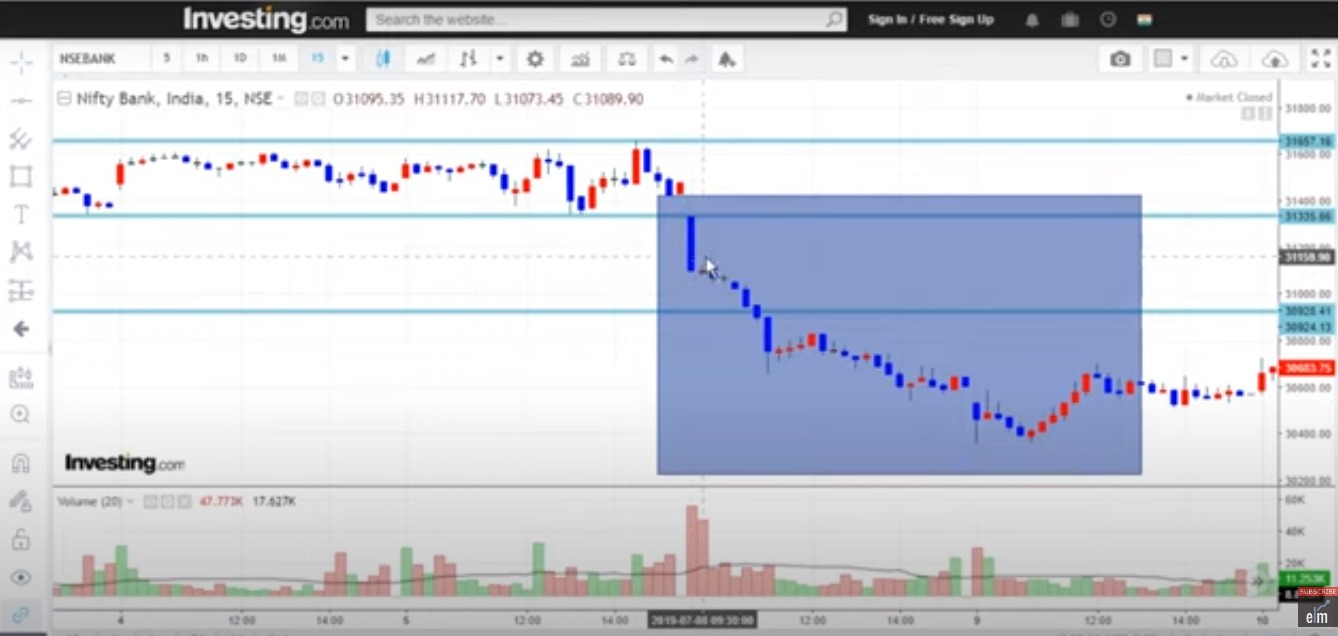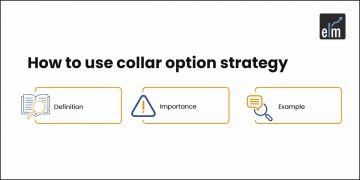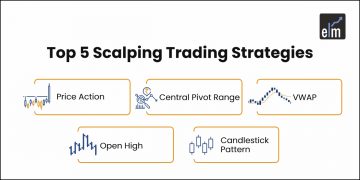In an interesting session as part of the highly popular MarketShala series conducted by Elearnmarkets, Mr Vivek Bajaj, Co-founder of Elearnmarkets, and Mr. Chetan Panchamia, a prolific intraday trader and trainer with many years of experience, came together to decide when to buy options and how to make money through this strategy by buying options.
Here is a short discussion of this session. To gain a practical understanding of when to buy options and how to make money through this strategy, watch the full video at the end of this blog.
An option buyer’s risk and loss are limited to the premium he paid. On the other hand, option sellers have unlimited losses.
It is seen that the Options buyers usually lose money 95% of the time. It is not always true that as an option buyer, you always lose money, but they can also make money.
Let’s discuss in detail:
Table of Contents
What is Trending Day?
When the opening price is near or almost equal to the low price and the prices start moving up due to aggressive buyer buying, then it is referred to as an up-trending day.
On the other hand, when the opening price is near or almost equal to the high price and the prices start moving down due to aggressive selling by sellers, then it is referred to as a down-trending day.
Whether the trending day will be bullish or bearish is identified in the first 15-30 minutes of the candlestick chart, which shows the aggression of the buyer or seller.
When any budget or any news comes into the market, then the next day, big moves come.
Let us take an example
Let us take the example of the chart of 5th July, when the budget had come. We can see that the market Is choppy, and no big move has come on the budget day.

On the next day, we can see a gap down and in heavy volume, there is selling in the market.
A down-trending day is usually characterized by a gap down and breakout from the low levels.
On the day after the budget announcement, the opening price was near or almost equal to the high price, and the market kept falling after that due to heavy selling volume.
On the trending day, the range of the candlestick is between 10-15%. So on these kinds of days, option buyers can make money as they can get 100-200 points for trading.
However, these types of trending days occur only 4-5 days in the month, and option buyers should know how to identify a trending day within the first 15-30 minutes.
Implied Volatility
Those who actively trade in the market must know the concept of implied volatility, which means there is a relationship between the volatility and underlying price.
Whenever there is an event in the market, so volatility rises because of which the premium prices also increase.
And when even because of volatility there is a crash in the market, in this case, how can the option buyer hedge his risk.
In this case, after 1-2 days of the end of the event, traders should not be option buyers as that is when the implied volatility crashes.
How can option buyers make money by buying options?
It is always seen that the option buyer has the benefit of Gamma which is on the last day of the expiry.
So, as the option buyers, if you want to trade and see, then when there is a big move, then they should try after 1 pm on the expiry day. Bank Nifty can give 7-9 points if there is a big move after 1 pm on the expiry day.
As we have discussed above, the profit of the option seller is limited to the premium that he sells, whereas the chances of the options buyers are less, but when he makes profits, they are multiples of his investments.
Ready to turn knowledge into profit? Explore our Options Trading Course India now for expert insights!
You can watch the full video from here:
Bottomline
In conclusion, purchasing options carries some risk even if it can present profitable avenues for making money. Comprehending the workings of the options market, carrying out exhaustive research, and implementing effective risk management techniques are essential components of success.
Visit StockEdge for more Market Updates
Frequently Asked Questions
What are the options?
Financial derivatives, known as options, grant the buyer the right, but not the duty, to purchase or sell the underlying asset at a given price within a predetermined window of time.
How do options work?
The underlying asset, such as stocks, commodities, or indexes, is what gives options their value. Call options grant the buyer the right to purchase the underlying asset, while put options grant the buyer the right to sell the underlying asset. These are the two different forms of options.
How can I make money by buying options?
Purchasing options can be profitable if the underlying asset’s price goes in the direction you expect. You can execute or sell a call option at a profit if the price of the underlying asset rises after you purchase it. In a similar vein, you stand to gain by selling or exercising a put option if the value of the underlying asset drops after you purchase it.







Thank you for decoding this complicated piece.
Hi,
Thank you for Reading!
Keep Reading!